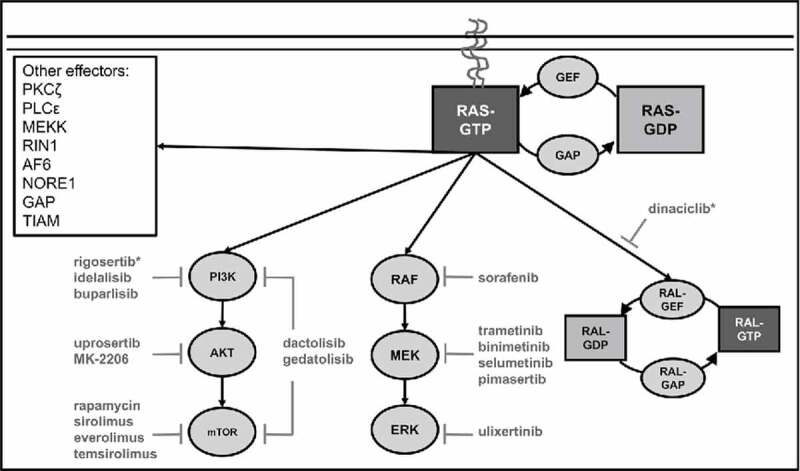Figure 1.

Canonical Ras signaling. Ras acts as a molecular switch that transduces signals from growth factor receptors to a variety of effector enzymes. Ras proteins are activated by guanine-exchange factors (GEFs) that promote the exchange of GDP for GTP leading to membrane localization and activation of effector enzymes. Ras proteins are negatively regulated by GTPase activating proteins (GAPs) that catalyze Ras's intrinsic GTPase activity resulting in the hydrolysis of GTP to GDP. The major oncogenic Ras effector pathways include the phosphatidylinositiol-3-kinase (PI3K), mitogen-activated protein kinase (MAPK), and Ras-like (Ral) small GPTase signaling pathways. The role of other Ras effectors in oncogenesis remains unclear. Selected inhibitors of Ras effector signaling that have been evaluated in clinical trials for AML are included. A complete list of clinical trials can be found at ClinicalTrials.gov. * Dinaciclib also inhibits CDK1, CDK2, CDK5, CDK9 and rigosertib also inhibits polio-like kinase 1 (PLK1).
